Both India and Canada have named new high commissioners to each other's capitals on 28 August 2025.
10 months after expelling the top envoys in a dispute over an alleged political assassination of the Khalistani terrorist Hardeep Singh Nijjar on the Canadian soil and change of the Canadian government leadership, the ties between the two nations may have started to restore.
The Canadian Foreign Affairs Minister Anita Anand has named Christopher Cooter as Canada’s new high commissioner to India, while the Indian foreign ministry stated it will assign its current envoy to Spain, Dinesh Patnaik, to Ottawa "shortly."
Ever since Canada’s baseless accusation, stemming from the Canadian police’s blatant charges of New Delhi being responsible for the assassination of Nijjar near Vancouver, the tensions between the two nations have risen. While the Canadian Police claim to have uncovered evidence of a campaign against Canadian citizens by agents of the Indian government, the proof is yet to be seen by India.
The deteriorating relations between the two nations started improving after the Canadian Prime Minister Mark Carney invited Indian Prime Minister Narendra Modi to the G7 summit in Alberta.
It is important to mention that in the case of Khalistani Nijjar, Surrey has been a hot bed for Khalistani empathisers and for groups which associate with the Khalistan movement. The operational centre for Khalistan exists within the premises of Gurudwara Dasmesh in Surrey, while monument hailing Khalistan stands erected within the premises. Each year, the centre celebrates the terrorists killed in Operation Blue star as martyrs, while anti-India chants and activities are hailed as voice of Khalistan. Pamphlets and documents were distributed titled as “who speaks for Khalistan”, promoting anti-India sentiments while calling for Khalistan referendum to carve a state of Khalistan from India. Apps were developed in regards to promote Khalistani agenda which asked personal information of the applicant along with their government identity cards for verification. Upon filling the required information, the user of the app upon determination from the app administrator (Khalistani worker) would receive a separate email with instructions, schedule for anti India rallies or protests to be conducted by groups like Sikhs for Justice (SFJ) or the Khalistan centre.
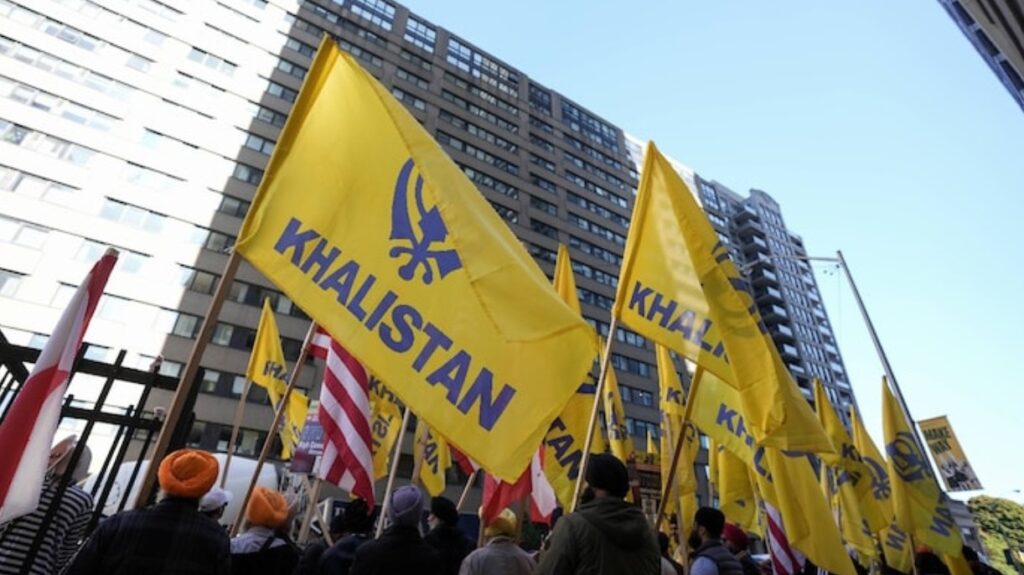
SFJ, founded in 2009, is known to organize unofficial Khalistan Referendum in countries with large Sikh diasporas to gain support for its independent nation of Khalistan in the Punjab region in India. It has been banned in India since 2019 for its involvement in anti-national and subversive activities, including calls for secession and supporting extremism against India.
Behind the facade of the Gurudwara, the Khalistani groups have tried to maintain deniability while projecting themselves as victims of an oppressing government. It is vital to mention that such developments come formulated as a part of Pakistani ISI’s Kashmir to Khalistan (K2K) plan to destabilize India. India has consistently sounded Canada against the Khalistani terrorists on its soil but not much has been achieved in regards, given majority of the Khalistani are claiming Canadian citizenship while certain political parties favour these individuals as vote banks. The Khalistani terrorists have amalgamated within the Sikh community in Canada and have tried to blur the differentiation by playing the community card and running its tailored narratives by preaching sacred texts.
Former Canadian Prime Minister Justin Trudeau previously said Indian diplomats had been passing information about Canadians to the Indian government, and that Indian officials then shared that information with organized crime groups, resulting in violence and deaths of Canadians.
In his asinine claim, Trudeau accused India of violating Canada’s sovereignty. India in response rejected his absurd claims.
The U.S. Justice Department announced criminal charges last year against a Indian government official in connection with an alleged foiled plot to kill SFJ Khalistani leader Gurpatwant Singh Pannun living in New York City.
Gurpatwant Singh Pannun leads the U.S.-based secessionist group while advocating for the creation of Khalistan.
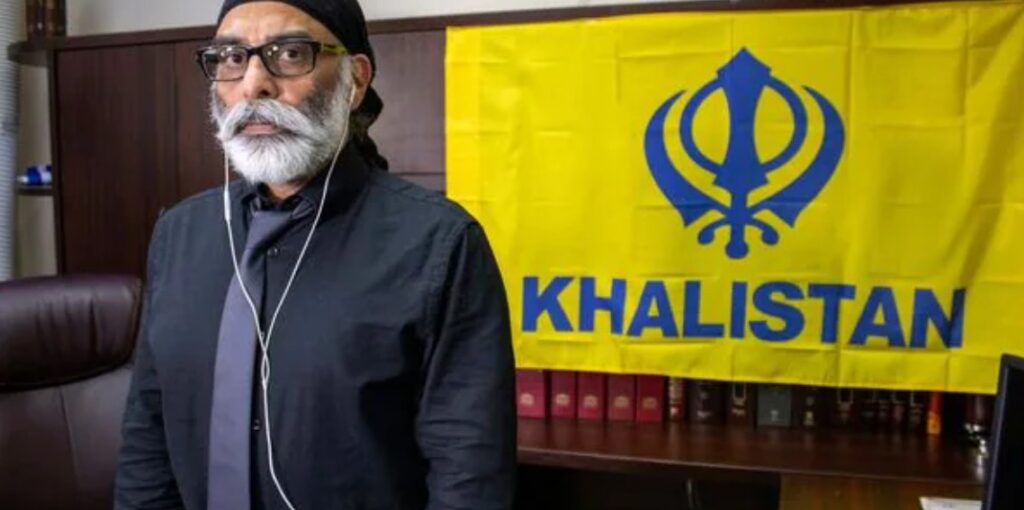
In 2020, India designated Pannun as a terrorist and he currently faces several criminal cases in the country, including sedition. Pannun is known for making provocative statements and issuing threats against Indian officials, infrastructure, and Hindu individuals. It is vital to mention that SFJ and its associates from the west, who are ISI funded, have tried to play a narrative of majoritarian terrorism in South Asia indicating at Hinduism as the source and Indian government as an intolerant fascist regime.
Most of Panun’s threats are made through videos and social media posts, which include calls for violence, warnings against Indian infrastructure and officials, and incitement of separatism.
In November 2024, Pannun threatened to attack the Ram Mandir in Ayodhya on November 16–17, 2024 in a video.
In October 2024, on the 40th anniversary of the 1984 anti-Sikh riots, Pannun issued warnings to travelers urging them to avoid taking Air India flights between November 1 and 19, 2024, stating the possibility of an attack.
Later, the same year in December, he issued fresh threats against India's Ambassador to the United States. India's Ministry of External Affairs (MEA) had raised concerns with the US government and expected action. However much remains yet to be seen.
In a video statement in April 2025, Pannun made provocative remarks targeting India, making claims of the Sikh diaspora supporting Pakistan while warning the Indian Army against attacking Pakistan via Punjab. In the process of making these absurd claims, he made references to assassination of the former Prime Minister Indira Gandhi.
The Indian government has consistently condemned Pannun's threats and rhetoric while the MEA has registered protests and concerns with the governments of the US and Canada, where Pannun operates from.
Pannun has tried to leverage his threats against a backdrop of the tensions between India and some Western nations over allegations of Indian involvement in plots to assassinate Sikh Khalistani leaders on foreign soil.
India’s National Investigation Agency (NIA) has seized his properties in both Chandigarh and Amritsar as part of a larger crackdown against Khalistani activists. SFJ continues to be banned in India. In early 2025, a tribunal in India upheld the ban on SFJ for an additional five years. Given the unchecked pattern of Panun’s threats and the soft response from US and Canada in regards to the Khalistani activities, the relations with these nations grew strained in this context.
In January 2025, a Canadian commission investigating foreign interference claimed that India engaged in psyops campaigns within Canada and further added, that the commission did not “acquit” India of killing Nijjar.
In July 2025, Canadian Security and Intelligence Service (CSIS) released a report confirming that Canada-based Khalistani extremists continue to “plan and fund violence” primarily targeted at India. This confirmed India’s stance of Canada being a “safe haven” for Khalistanis.
India has continued to maintain that Canada allows Sikh separatists to operate freely, accusing Ottawa of ignoring its national security concerns.
While India has maintained that Canadian allegations of its involvement in Nijjar’s death are without verifiable evidence the Canadian intelligence continues to investigate and believes that there is foreign interference on its soil.
It is imperative to mention, on 22 July 2024, the BAPS Swaminarayan Mandir in Edmonton was vandalised by the Khalistanis. This incident followed another incident which occurred on 19 June 2024. The Canadian parliament observed a minute’s silence on the first death anniversary of designated Khalistani terrorist Hardeep Singh Nijjar. This can be inferred as the political representatives’ support to the Khalistanis.
Since early 1980s, the Canadian government, regardless of the political parties in power, have been soft and sympathetic towards the Khalistan movement.
In 1982, the Canadian government overlooked the repeated Indian request for the extradition of a Khalistani terrorist Talwinder Singh Parmar. The government of Pierre Trudeau disapproved Parmar’s extradition. Canada claimed that the extradition could not proceed as India only acknowledged Her Majesty as Head of the Commonwealth, and not as Head of State.
Additionally, the Canadian government’s inability or failure to bring the attackers of the Air India “Kanishka” Bombing of 1985 to justice only added further friction between the two nations.
Since Justin Trudeau’s government came to power in 2015, the political parties have taken Sikh appeasement into great consideration terms of vote banks. In the 2015 Canadian general election, Trudeau’s Liberal Party employed 18 Sikhs leader, four of which were cabinet members in line with their vote bank policy. It is no wonder that in 2017, Trudeau’s first Liberal Party in the Ontario Provincial Legislative Assembly passed a resolution regarding the anti-Sikh riot of 1984 as an act of genocide.
Contrary to political mollification of the Sikh diaspora, Canada’s Ministry of Public Safety released a report “2018 Public Report on the Terrorist Threat to Canada” which indicated the Sikh extremism as a security threat to Canada. After facing a heavy counter reaction from the Sikh populous, the administration amended the Report without any mention of Sikh extremism.
It is evident that Canada has employed a permissive approach towards anti-India and pro-Khalistan movement.
It is also evident that the three political parties—the Liberal Party, the Conservative Party and the New Democratic Party have shown consensus to the Khalistani supporters. It is expected that the trend to support the Khalistani agenda may continue in the future owing to the growing pro Khalistan diaspora in Canada. Hence India will be expected to proceed with caution keeping its own interest in mind.


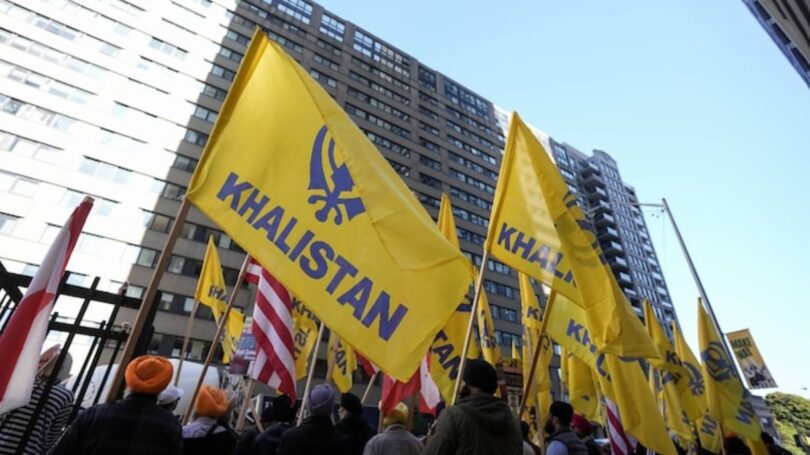

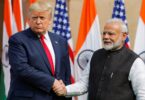


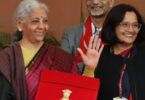



Nice analysis!